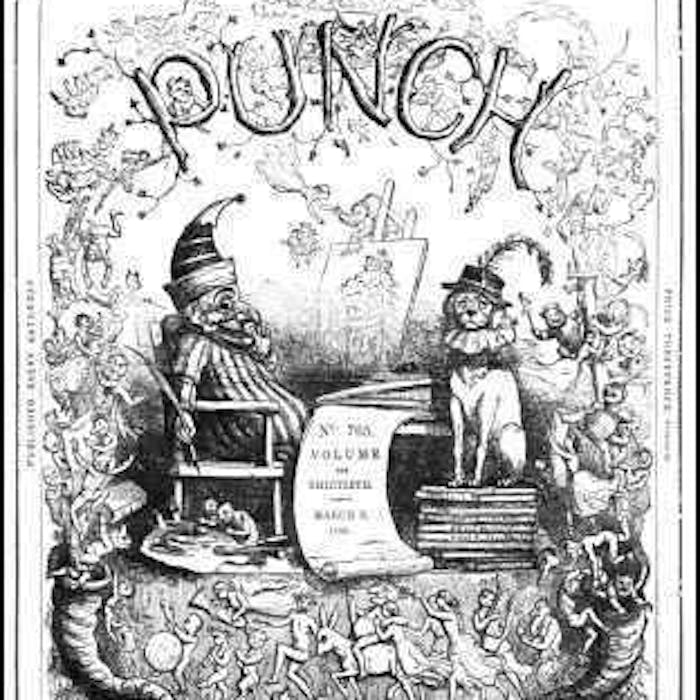
Punch: satirical magazine that gave birth to the cartoon
Punch was a British weekly satirical magazine that lasted through three centuries. Established in 1841 by Henry Mayhew and wood-engraver Ebenezer Landells, it was most influential in the 1840's and 1850's, when it helped establish the 'cartoon' in its modern manifestation as a humorous illustration.
The name was selected from the irreverent character of Mr Punch, of Punch and Judy - which reflected the magazine's satiric intention.
Punch struggled to attract a readership in its early years - except for 1842's 'Almanack' issue, which sold 90,000 copies. In December of that year, financial difficulties resulted in the sale of the magazine to Bradbury and Evans (publishers of novelists Charles Dickens and William Makepeace Thackeray).
Bradbury and Evans were able to capitalise upon newly emerging mass printing technologies, and Punch became a popular satirical publication due to sophisticated humour, and lack of offensive material - contrasting with much of the satirical press of the time. It received respectability through association, because The Times and the News of the World incorporated small pieces from Punch as column fillers. Known readers include Queen Victoria, Elizabeth Barrett, Charlotte Brontë, Thomas Carlyle and Emily Dickinson.
Punch was seminal in defining 'cartoon' as a comic drawing. It was first used in the publication in 1843, when the Houses of Parliament were to be decorated with murals. 'Cartoons' - then meaning a sketch on a large piece of cardboard - for the mural were displayed for the public. Punch appropriated the term to satirically reference its political cartoons, and Punch's popularity led to the widespread use of the term 'cartoons'.
Circulation broke the 100,000 mark around 1910, and peaked in 1947–1948 at 175,000 to 184,000. Sales declined steadily thereafter; until closure in 2002 after 161 years of publication.
Further reading
Links to external websites are not maintained by Bite Sized Britain. They are provided to give users access to additional information. Bite Sized Britain is not responsible for the content of these external websites.
